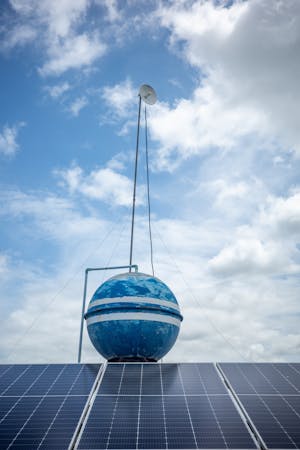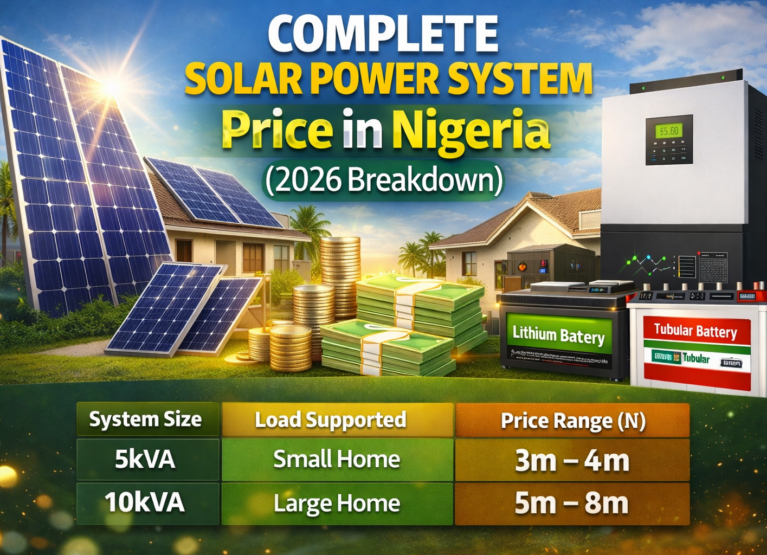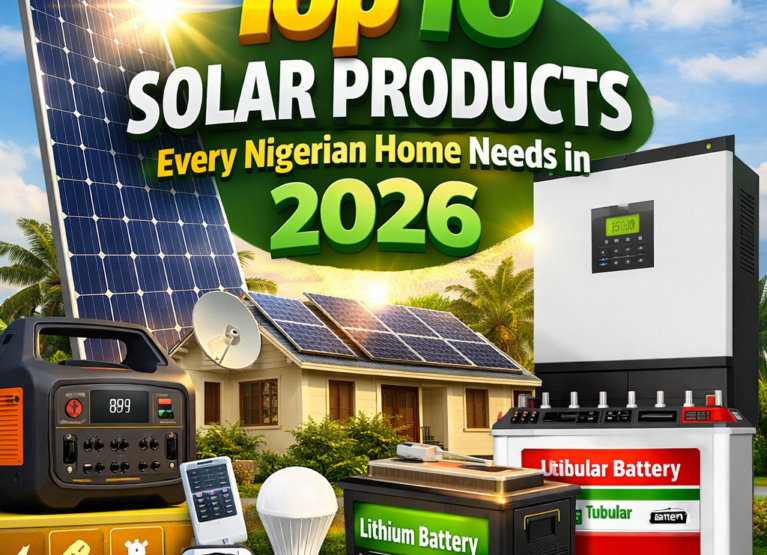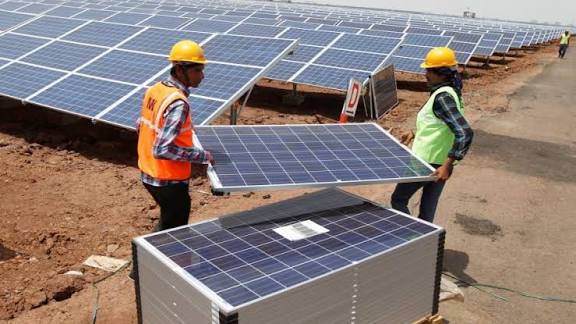How Do I Choose the Right Solar System for My Home in Nigeria?
The continues high cost of Electricity in Nigeria as well as the constant power outage is causing huge headache and worries to most Nigerians, this has led to lots of Businesses and homes in the country to start turning to alternative power sources, a lot of people have decided to pitch their tents with solar system as a very reliable alternative to traditional Electricity.
When it comes to choosing which solar panels to install in your home, lots of people tends to be more confused on which solar panels to choose from especially if you consider the so many options that are available in the market.
However to choose the correct solar panels, you need to ask yourself what kind of energy do you want? Is it just to power things like your phone and fan? or is it for your big business that needs more energy? knowing what you are buying the solar for is actually the first step you’ll take when you are deciding on what solar panels you want to purchase, here at Arenahub Global, we’re ready to help you decide of the best solar panels for your home, office or business, we’ve arranged this simple yet explosive guide to help you to know the right one to choose
1.What Do You Need The Solar Energy For?
Before you even think of buying a Solar System, ask yourself what you want to power with these panels. How much Electricity power do you consume on a daily basis? Your answers to these questions will help you to choose the right solar panels that would make sure you’re never short of power.
How to Calculate the Type of Solar Energy You Need
.1List Your Appliances: The first step you’ll need to take when calculating the type of solar panels you need is by making a list of your appliances.
To do this, you will need to write down all the electrical appliances that you are going to make use of, for example your fridge,Tv, lights, air conditioners etc.
2.Check Their Power Ratings:Every of the appliances we’ve mentioned above always comes with a power rating, they’re measured in watts, they’re always listed in the cartoons of these appliances or their user manual
3.Calculate Total Consumption: After getting the watts of your appliances, the next step will be to multiply the wattage of all the appliances by the number of hours you make use of them a day, then you’ll sum up all their values so as to get your total daily energy Consumption in watt-hour (Wh)
For example:
a.1 LED bulb (10W) used for 6 hours = 10W × 6 = 60Wh
b.1 fan (75W) used for 8 hours = 75W × 8 = 600Wh
c. 1 fridge (150W) running for 24 hours = 150W × 24 = 3,600Wh
If after the calculation you find out that the total electricity Consumption of all your appliances is 5,000Wh(5kWh) what this simply means is that you are going to be needing a solar system that is able to give you at least a total energy of that amount daily.
ALSO READ:How Do I Choose the Right Solar System for My Home in Nigeria?
2. Choose the Right Solar Panel Size
We know for a fact that solar panels do convert solar panels to electricity, however the amount of the power they’re going to produce will depend on how efficient the panels are as well as their sizes
Types of Solar Panels
1.Monocrystalline Panels:These type of solar panels have very high efficiency, there lifespan is usually longer, however they tend to be more expensive
2.Polycrystalline Panels:These solar panels are more affordable than the monocrystalline, however they are not as efficient as the former.
3.Thin-Film Panels: This type is very lightweight, it’s not usually heavy, but it has lower efficiency compared to others.
Also you should know that the number of solar panels you are going to get will also depend on the available space in your roof
3. Choose the Right Inverter
The major work of an inverter is to simply convert the DC power that it gets from the solar panels into AC power that we use to power our home appliances.
Types of Inverters
1.Modified Sine Wave Inverters:They are very cheap, however they’re not always suitable for devices that are sensitive.
2.Pure Sine Wave Inverters: These types of inverters are the best for your homes and offices, they’re the type of Inverter that usually powers appliances
4. Select the Right Battery Storage
If you want to store solar energy that you’ll use during periods with low sunlight, then you’ll need solar batteries. there job is to store energy during sunny period which you can use later on
Types of Solar Batteries
a.Lead-Acid Batteries:These types of solar batteries are very much affordable, however they’ll always need regular maintenance meaning you’ll be maintaining them frequently.
b.Lithium-Ion Batteries: They are more expensive than Lead Acid batteries, however they tend to last longer and you only need to maintain them once in a while.
5. Your Budget and Cost Considerations:
The cost of solar installation in Nigeria most times depends on the quality of the components you’ll purchase, the size of the system as well as how much you’re going to be charged for Installation. however below is an estimated Cost Breakdown in Nigeria
a.Small system (1-2kVA, basic lighting & TV)₦150,000 – ₦500,000
b.Medium system (3-5kVA, that can power fridge, TV, fans, lights): ₦500,000 – ₦1,500,000
c.Large system (5-10kVA, that can power a full home power including ACs) ₦1,500,000 – ₦3,000,000
Although it might seem expensive to install solar panels in Nigeria, trust us the initial investment is well worth it, Solar energy will definitely help you to reduce how much you will have to pay for electricity bills.
6. Find a Reliable Solar Installer
You’ll need a professional Installation if you want your system to be effective, if you hire the services of professional installers like Arenahub Global, they’ll make sure that you have correct wiring that will help you to prevent losing your energy, they’ll also help you to position your panels in the right way and place so that they can receive maximum sunlight
 English
English
 French
French
 German
German
 Italian
Italian




